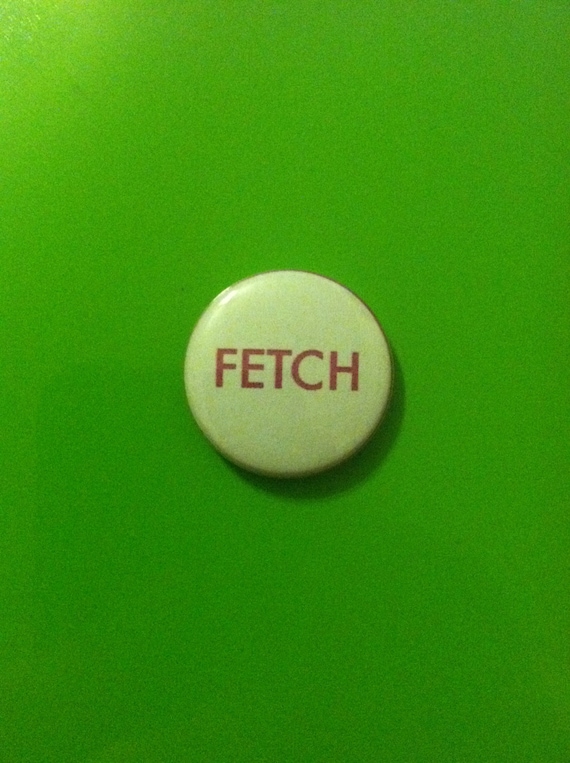

More recently, "The Fetch" is the malevolent narrator of Patrick McCabe's 2010 novel The Stray Sod Country, wherein it temporarily inhabits the bodies of the residents of a small Irish town, causing them to commit both psychological and physical harm to themselves and others. Patrick Kennedy's 1866 folklore collection Legendary Fiction of the Irish Celts includes a brief account of "The Doctor's Fetch", in which a fetch's appearance signals death for the titular doctor. "The fetch superstition" is the topic of John and Michael Banim's Gothic story "The Fetches" from their 1825 work Tales by the O'Hara Family and Walter Scott used the term in his Letters on Demonology and Witchcraft, published in 1830, in a brief reference to "his. Appearances in literature Ĭorresponding to its contemporary prominence in "national superstitions", the fetch appeared in Irish literature starting in early 19th century.


On these grounds, William Sayers has argued that the term fetch originated as a Hiberno-English form of Irish fáith. Unlike the Irish concept, the fylgja is almost always female. The fylgja, which in Norse mythology denoted an alter ego, usually in animal form, connected to a person's fate. Similar ideas are also found in the Old Norse idea of the fylgja and these are relevant to understanding Irish tradition because of the importance of the Vikings in Ireland. Portents of death not dissimilar to later fetch traditions are found in early Irish literature and are associated with the Old Irish term fáith ("seer"): Fedelm issues prophecies of death in Táin Bó Cuailnge Cormac Connloinges sees a sinister vision of a woman washing bloody chariot wheels in Bruiden Da Choca a hag prophecies the death of Conaire in Togail Bruidne Da Derga and in Cath Maige Tuired, the Mórrigán likewise prophesies death. Recent research has not arrived at a consensus on this question. Since it is glossed with the Old English word mære, which denotes female supernatural being associated with causing illness and nightmares, it could be the origin of the Hiberno-English fetch. In the glossaries, faecce is given as a lemma (a word to be glossed) given that most such words in these glossaries are in Latin, it ought to be a Latin word, but no such Latin word is known, leading some scholars to suggest it may be Old Irish. Faecce could in theory be an Old English form of modern English fetch. Īccounts of the origin of fetch are complicated by a word faecce, found in two textually-related Old English glossaries, the Corpus Glossary and the First Cleopatra Glossary. It may derive from the verb "fetch" the compound "fetch-life", evidently referring to a psychopomp who "fetches" the souls of the dying, is attested in Richard Stanyhurst's 1583 translation of the Aeneid and the first edition of the Oxford English Dictionary suggested this usage may indicate the origin of the term fetch. The etymology of fetch is obscure and the origin of the term is unknown. Francis Grose associated the term with Northern England in his 1787 Provincial Glossary, but otherwise it seems to have been in popular use only in Ireland. As such, it is similar to the Germanic doppelgänger and to some conceptions of the British wraith. A sighting of a fetch is generally taken as a portent of its exemplar's looming death, though John and Michael Banim report that if the double appears in the morning rather than the evening, it is instead a sign of a long life in store. The fetch is described as an exact, spectral double of a living human, whose appearance is regarded as ominous. The sighting of a fetch is regarded as an omen, usually for impending death. England.A fetch, based in Irish folklore, is a supernatural double or an apparition of a living person. The slang became extremely popular with the Mean Girls' fandom and to this day, after 16 years as of 2020, people all over the world are still trying to make 'fetch' a real thing.Īlong with ' You go, Glen Coco!', 'fetch' is by far the most memorable term from the Mean Girls franchise. Later in the movie, she repeated it after their performance in Winter Talent Show, putting off Regina. It is most likely a shortened version of the word "fetching," a now less-common term for attractive.įetch was first used by Gretchen when Cady showed her bracelet to the Plastics. The word's actual meaning is supposed to be 'nice', 'fresh', 'desirable,' or 'cool'. Gretchen, stop trying to make 'fetch' happen, it's NOT going to happen!įetch is a slang term Gretchen Wieners often uses and tries to 'make it happen,' hoping it becomes a new it-word.


 0 kommentar(er)
0 kommentar(er)
